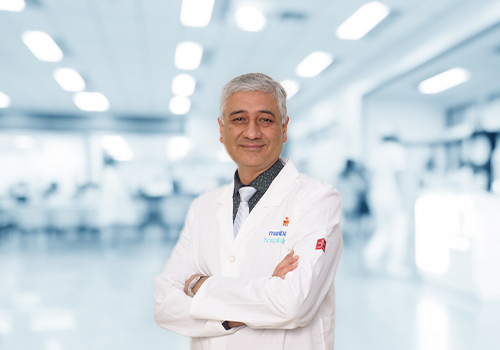
This chronic disease needs lifelong management, but the proper treatment of the symptoms and signs of heart failure will not only improve the condition but also make the heart stronger. Proper treatment increases the patient’s life quality and expectancy. Heart valve blockages can be reversed with surgeries and medications.
Surgery and medical devices
1. Coronary bypass surgery: If the reason for heart failure is severely blocked arteries, this surgery may be recommended by the doctor. In this procedure, blood vessels from the patient’s leg, chest or arm bypass a blocked artery in the heart to allow the free flow of blood through the heart.
2. Heart valve repair or replacement: A doctor may recommend the replacement or repair of a faulty heart valve. Surgeons may perform Annuloplasty- replacing or tightening the ring around the valve, Valvuloplasty- modifying the original valve to stop the backward flow of blood. Surgeons may also remove excess valve tissues or reconnect valve leaflets to repair the valve. When valve repair is impossible, it is replaced by a prosthetic valve. Certain types of heart valve replacement or repair can be done by cardiac catheterization or minimally invasive surgery (without open-heart surgery).
3. Implantable cardioverter-defibrillators: Similar to a pacemaker, this device is implanted in the chest under the skin with wires leading to the patient’s veins and into the heart. This device monitors the heart rhythm and gets it back into normal if it starts beating at a dangerous rhythm or stops beating.
4. Cardiac resynchronization therapy /biventricular pacemaker: This pacemaker sends electrical impulses (times ones) to the right and left ventricles to ensure that they pump in an efficient and coordinated manner. Patients with heart failure have issues with their heart’s electrical system that can result in the weak muscles beating in an abnormal fashion. This inefficient contraction of the muscles may cause the condition to worsen.
5. Heart pumps: Ventricular assist devices known as VADs are implanted into the chest or abdomen and attached to the patient’s weakened heart to help the pumping action. It is now also used as an alternative option to heart transplant. VADs can significantly improve and extend the lives of patients with severe heart failure that aren’t eligible for heart transplantation.
6. Heart transplant: Patients with severe heart failure that haven’t been responding to medication or surgery need to have their heart replaced by a healthy heart.
Medications
Depending upon the symptoms of the patient, a combination of medication may be required to successfully treat heart failure:
-
Angiotensin-converting enzyme (ACE) inhibitors: Patient with systolic heart failure is usually prescribed ACE inhibitors. They are a kind of vasodilators (a drug that improves blood flow, decreases the workload of the heart and lowers blood pressure by widening blood vessels) and examples include Enalapril (Vsotec), Captopril (Capoten), and Lisinopril (Zestril)
-
Beta-blockers: Carvedilol (Coreg), Metoprolol (Lopressor), and Bisoprolol (Zebata) are examples of this class of drugs and it helps in reversing some of the damage for patients with systolic heart failure and helps to reduce blood pressure and slows the heart rate.
-
Angiotensin II receptor blockers: Valsartan (Diovan) and Losartan (Cozaar) and ACE inhibitors have similar benefits and can be used by patients who can’t tolerate the latter.
-
Inotropes: Patients suffering from severe heart failure are prescribed this intravenous medication to maintain blood pressure and enhance the pumping action of the heart.
-
Diuretics: Furosemide (Lasix) also known as water pills keep fluid from collecting in the body and also decreases fluid in the patient’s lungs, making breathing easy for him or her.
-
Aldosterone antagonists: Eplerenone (Inspra) and Spironolactone (Aldactone) help those with severe systolic heart failure by enhancing their life and period of life.




















 2 Min Read
2 Min Read














